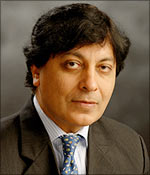|
|
| Help | |
| You are here: Rediff Home » India » Get Ahead » Money » Invest |
|
 | ||
| |||||||||||||||||||||||
|
| |||||||||||||||||||||||
With the Indian Premier League [Images] in full flow and providing such a visual delight, it was interesting to read an article by Graeme Smith [Images] titled ' My Hindi lessons are going well'. He writes that it has been wonderful moving around with young Indian players. He has been gaining a different perspective and exploring a different side of India. He never expected a South African-Australian encounter to be so tame -- he found Shane Warne [Images] warm, interesting and certainly instructive for a captain.
Never before have players of so diverse skills, talent, age groups and nationalities played on the same platform. Rajasthan Royals [Images], who are presently leading the league table, have meshed exceedingly well as a team and put in an outstanding performance. Warne has marshalled his resources optimally and each player has chipped in his well-assigned, specific role. It disproved the earlier forecasts of experts that Royals lacked superstars and would not fare well.
Managing your financial portfolio is similar. Markowitz won the 1992 Economics Nobel Prize [Images] for his portfolio management theory. He states that it is possible to maximise returns while minimising risks by diversifying your portfolio. Effective diversification is achieved by putting your money in various asset classes and not relying on one superstar. Moreover, these asset classes should have a low correlation or in other words they should not all rise together or fall together. On the other hand, some could thrive in certain conditions and some in others. They could have specific roles in the portfolio and together as a team will maximise risk adjusted returns. It disproves the misconception of many investors that high returns can only be achieved by taking high risks.
Multiple research studies over a long period of time establish that appropriate asset allocation determines more than 90 per cent of a portfolio return while individual security selection only a miniscule part. Unfortunately time spent is totally the opposite. In my conversation with numerous investors, I am surprised by their fixation on getting hot tips on how a stock will fare rather than on economic factors driving various asset classes. Effective diversification or appropriate asset allocation is similar to cricket team selection and the single most important tool for maximising wealth.
T20 cricket has clearly and forcefully delineated the importance of team selection. Vijay Mallya [Images], owner of Bangalore Royal Challengers [Images] has no hesitation in agreeing totally. According to him, he had erroneously taken a back seat, mixing a heady cocktail of F1 and T20 for producing real good times, while his main drivers Rahul and Charu were selecting the team. According to some allegations, they left no stone unturned and no avenue unexplored in selecting a full fledged test team smartly turned out in their flashy T20 clothing.
You can have multiple permutations and combinations for a portfolio. For example, if you have Rs 100, you can put everything in cash but it will not produce any return. Alternatively you can put the full amount in one stock, but that will be highly risky. Similarly everything in real estate will be risky and illiquid (would not be easy to sell and convert into cash). Appropriate asset allocation is achieved by optimising an equation where personal life cycle and business cycle stages are the constraints. It is akin to targeting maximum possible runs taking into account the pitch condition (business cycle stage) and the team strengths (personal stage).
The current Indian business cycle is akin to a batsman-friendly pitch where a good score (good returns) is very much possible. Presently the economic growth rate is high and not likely to be affected too much by global woes. Corporate earnings (profits) growth rate is lower as compared to preceding years but is still impressive. Indian equities will continue to perform well.
Save Rs 3,000, become a crorepati
However some cracks are just beginning to appear. Inflation is higher with consequent impact on interest rates. Global cues are not so rosy with USA sub prime crisis and housing slowdown. Oil and commodity prices have risen at a fast pace. While the pitch is still good, a hostile bowler is presently engaged in a good spell. Relying only on one kind of player could lead to loss of wickets. A mix of players with diverse skill sets is required at this stage.
With the medium and long term Indian story totally intact, India, irrespective of whether iconic or non-iconic, will remain the mainstay of the team. However, there is rationale for taking players across geography and across alternative asset classes. Insert a solid Matthew Hayden [Images] and a dash of global real estate, put exotic Geoff Marsh and a bit of Latin America, add lustrous Shane Warne and a trace of gold, attach versatile Shane Watson and a little of multi tasking structured fund and you will be making your team lot more productive, resilient, colourful and successful like the current bunch of Rajasthan Royals.
Summary: Appropriate asset allocation, like the right team selection in cricket, is the single most important factor determining whether somebody wins the wealth game.
The author is the MD of Finance Doctor, a wealth management company and author of the recently published book, Winning The Wealth Game: Cricket Strategies For Financial Freedom.
|
|
| © 2008 Rediff.com India Limited. All Rights Reserved. Disclaimer | Feedback |